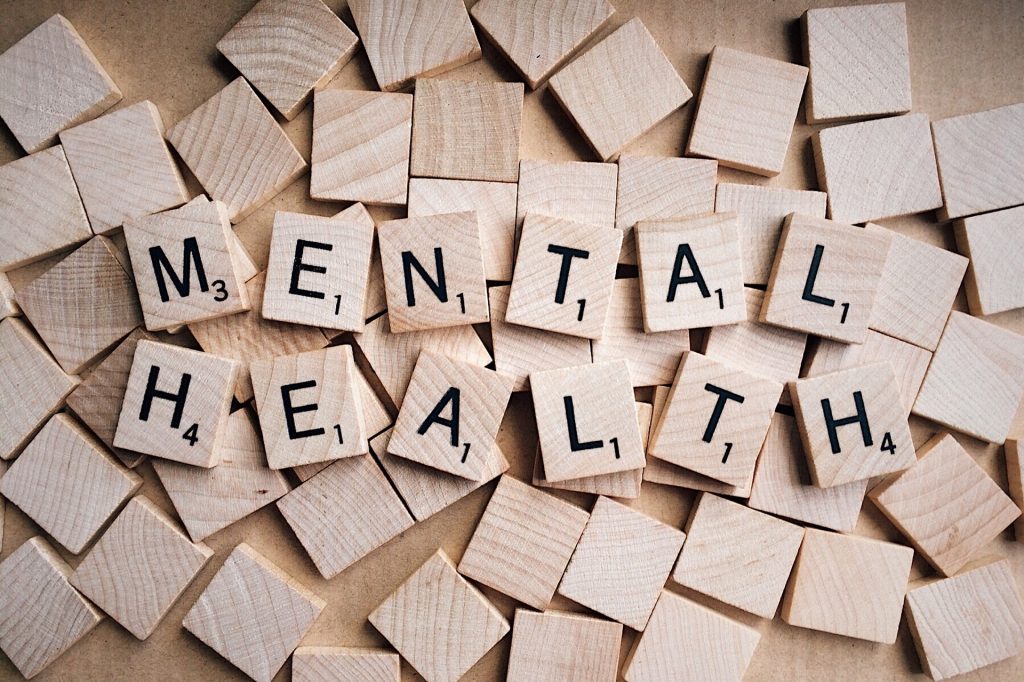Mental health is a vital aspect of our lives, yet it can be difficult to maintain good mental health on our own. That’s where mental health apps come in! These helpful applications can provide support and guidance to users struggling with mental health issues. But with so many options available, how do you choose the right one for you? In this article, we will discuss the different types of mental health apps and help you decide which one is right for you.
Contents
What Is Mental Health?
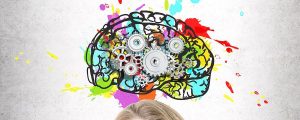
Before you can decide which mental health app is right for you, it’s important to understand what mental health is. Mental health includes our emotional, psychological, and social well-being. It affects how we think, feel, and behave. It also helps determine how we handle stress, relate to others, and make choices.
Mental health is important at every stage of life, from childhood and adolescence through adulthood. Everyone experiences mental health problems at some point in their life. But not everyone gets help. Mental health problems can range from mild to severe and can affect your daily life, relationships, and ability to work or go to school.
Types of Mental Health Apps
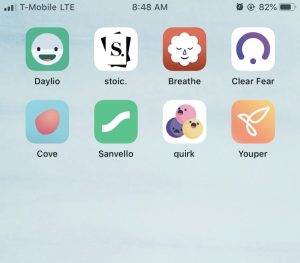
There are many types of mental health apps available, but they can be generally divided into the following categories:
- Mood and anxiety trackers: These apps help you track your moods and symptoms of anxiety over time. This can be helpful for tracking patterns and seeing if any changes in your mood or anxiety levels occur after using the app.
- Therapy tools: These apps provide therapy exercises or tasks that can be done on your own, with a therapist, or with a group. They can help you learn new coping skills, manage your stress, and deal with difficult emotions.
- Relaxation and meditation apps: These apps provide exercises and guided meditations to help you relax, de-stress, and focus. They can be helpful if you’re struggling with anxiety or stress.
- Organization and goal tracking: These apps help you track your goals, habits, and progress. They can be helpful for organizing your thoughts and setting and reaching goals.
- Cognitive behavior therapy (CBT) apps: CBT is a type of therapy that helps you change the way you think and behave. CBT apps provide exercises, tools, and guidance to help you practice CBT on your own.
- Social networking support groups: These apps connect you with other people who have similar mental health conditions. They can provide support, advice, and information.
How Do mental Health Apps Work?
Mental health apps work by providing you with tools, exercises, and guidance to help you manage your mental health. They can be helpful if you’re struggling with a mental health condition or just want to improve your overall mental health.
Many of these apps are free or have a free trial option. You can also find paid apps, but most of the apps in this list are free.
How to Choose a mental Health App
There are many different mental health apps available, so how do you choose the right one for you? Here are a few tips:
- Think about what you’re looking for: What type of app do you want? Which mental health tracking tools do you think could be helpful for you? Options include mood and anxiety trackers, therapy tools, relaxation and meditation apps, organization and goal tracking apps, CBT apps, or social networking support groups.
- Consider your needs: What are you struggling with the most? Moods, anxiety, stress, relationships, goals?
- Read reviews: Look for reviews of the app on Google Play Store or Apple App Store. Do other people find the app helpful? Is it easy to use?
- Try out a few apps: Not all apps work for everyone. Try out a few different mental health apps to see which one works best for you.
Best Mental Health Apps
HeadSpace
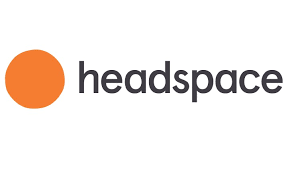
There are over 200 guided meditation sessions, catering to different themes and moods. The app is free for the basics, though there is a subscription fee for some of the more advanced features. Some of these include personalized reminders, tracking your progress, customizing your meditation room with images from around the world, etc.
Stop, Breathe & Think
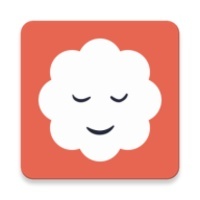
This app is free to download but charges a monthly fee for most of its features. The basic function of the app is to provide guided meditation sessions that are themed towards different moods or goals. There are also some non-guided exercises available. Like HeadSpace, this app also has an accompanying mascot, Tess the Fox, who is there to offer encouragement.
Buddhify
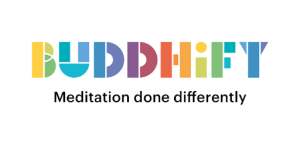
This app has similar features to HeadSpace and Stop, Breathe & Think in that. It offers non-guided mindfulness meditation exercises for different moods or goals. It also contains a timer with customizable settings along with instructions on how long each session should last. Buddhify also has an in-app “buddy” system that encourages users to share their progress online.
MantraCare
 Mantracare is an online resource that has different apps for different mental health issues. They have an app for anxiety, depression, bipolar disorder, post-traumatic stress disorder, and eating disorders. Each app includes educational materials about the disorder, a symptom diary to help track your progress, and relaxation exercises.
Mantracare is an online resource that has different apps for different mental health issues. They have an app for anxiety, depression, bipolar disorder, post-traumatic stress disorder, and eating disorders. Each app includes educational materials about the disorder, a symptom diary to help track your progress, and relaxation exercises.
It is best suitable for people who want to learn about their disorder and how to manage it. They also provide online therapy which can be helpful to people who are unable or unwilling to seek help in person.
MindShift
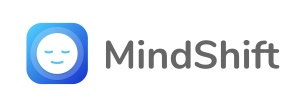
This app is designed to help teenagers suffering from stress or anxiety. Like other similar apps, this one offers relaxation exercises and tracks users’ moods. But, it also contains chat rooms where teenagers can interact with one another. The chat room feature is meant to be a safe space for teens to talk about their problems anonymously.
Breathe2Relax
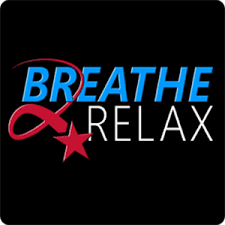
This is a free app that offers short relaxation exercises for different moods or situations. It also offers non-guided mindfulness exercises, some of which are designed to be done while commuting. The app includes a timer with customizable settings for different types of relaxation techniques.
This app is best suitable for people who don’t have time or motivation to do longer meditation sessions. It’s also great for helping people relax before bedtime so they can fall asleep more easily.
InnerHour
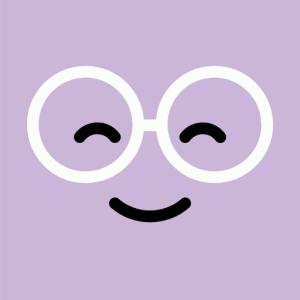
This app offers a range of non-guided mindfulness exercises, both relaxing and invigorating. The basic version is free to use but has limited access to the different types of exercises. There is also a monthly subscription fee if you want full access to all features.
InnerHour uses an interesting concept unlike other apps: it tells you exactly how much time each exercise should last—ranging from one minute to fifteen minutes. This can be helpful for people who like to follow a strict routine and need that kind of structure.
Calm
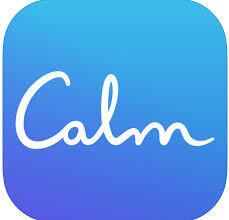
This app currently has over 100 guided meditation sessions, catering to different situations and feelings. There is also a sleep section designed to help users fall asleep. There are different subscription options. The basic plan allows access to most of Calm’s features while the premium one includes the full range of content without any ads. There is also an option for family sharing so multiple members of the same household can have their own personal profiles.
Calm is best suitable for people who want a wide variety of guided meditation sessions and like to follow a routine.
Wysa
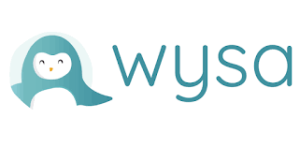
This app is designed to help people suffering from anxiety, stress, or depression. There are different sections for different moods. The app also includes a daily activity diary and an in-app chat option where you can talk about your feelings with other users.
Wysa doesn’t rely on meditation or relaxation exercises but instead helps users learn how to take better care of themselves through daily habits. This app is best suitable for people who want a source of support and motivation to help them improve their lives.
Intellect

Intellect is an online platform that provides information about different mental health issues. It also has a section with guided meditation videos for different feelings and situations. The videos are free but accessing other features requires payment.
This app is best suitable for people who want to learn more about their disorder or the basics of mindfulness without having to install another app on their phone.
Meditation Studio
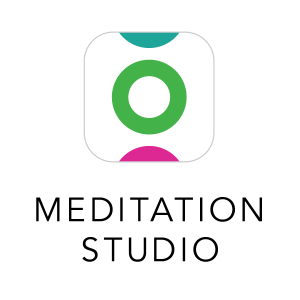
This app contains various guided meditation tracks, ranging from three to thirty minutes each. It also has a sleep section including different sleep stories and white noise sounds. Like Calm, it has subscription options so you can choose the one that best fits your budget.
This app is best suitable for people who find guided meditation helps to calm down and relax.
MyPossibleSelf
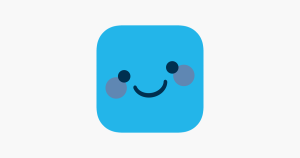
MyPossibleSelf is a free app that provides short guided meditation exercises to talk about where you’d like to be in your life. It uses the metaphor of an avatar. The basic version includes four exercises while the full one has twelve sessions.
This app is best suitable for people who would like to think more about what they want out of life and improve their mental well-being.
StressCoach
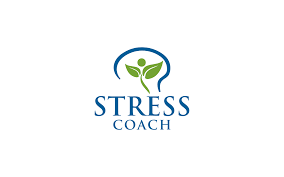
This app is designed for people who have been officially diagnosed with anxiety or panic disorder. It provides a combination of mindfulness exercises, motivational videos, and content that helps you change the way you think about things. There is also a subscription option available for full access to all features.
This app is best suitable for people who want to use mindfulness exercises to gradually improve their mental well-being.
Sanvello

This app is designed to help you get started with mindfulness. It includes different trackers, allowing you to monitor your progress in particular areas of life. Sanvello doesn’t include meditation exercises but it does have a library full of audio content that can be helpful for learning more about mindfulness. This app is best suitable for people who don’t have a lot of time to meditate but would like to learn about mindfulness in their day-to-day lives.
BetterHelp
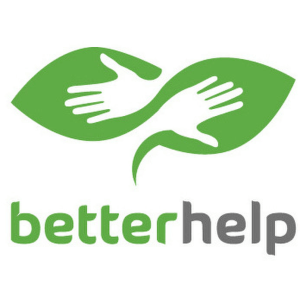
This platform provides access to a huge range of different therapists. You can choose from therapists who specialize in treating anxiety, depression, or OCD. There is also an option for couples counseling. The great thing about this app is that you can schedule your sessions according to your own schedule and choose the time where you’ll be most relaxed. This app is best suitable for people who want professional support and would like to schedule their sessions on their own time.
TalkSpace
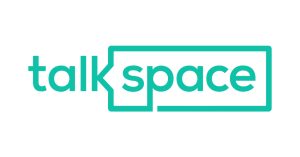
This app is similar to BetterHelp. It only includes therapists who specialize in treating anxiety, depression, or OCD. There are various plans you can choose from based on your budget and needs. What’s great about this app is that it gives you the possibility of choosing a therapist with whom you feel most comfortable. This app is best suitable for people who want professional support and would like to choose their therapist.
Pacifica
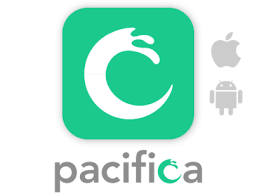
Pacifica is an app that includes different mental health trackers and support programs. It has three options: free, premium (7-day trial for 7$), and family (15-day trial for 6$). Tracks include guided meditation, sleep stories, yoga videos, daily mood logs, breathing exercises, etc. This app is best suitable for people who want to track their moods, sleep patterns, and progress.
Benefits Of Using Mental Health Apps
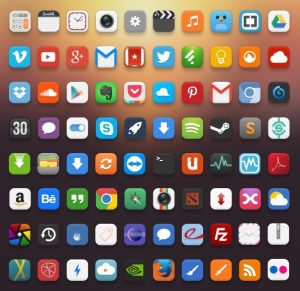
- Mental health apps can provide support and motivation to help you improve your life.
- They can also help you learn more about your disorder or the basics of mindfulness.
- Many mental health apps have guided meditation exercises that can help you calm down and relax.
- Some platforms provide access to a huge range of different therapists so you can find the right support for you.
- You can schedule your sessions according to your own schedule with many mental health apps.
- This is a great way to take care of yourself without having to leave the comfort of your home.
- It’s important to do your research before choosing a mental health app, as not all apps are created equal.
- The best mental health apps can provide support and motivation to help you improve your life. They can also help you learn more about your disorder or the basics of mindfulness.
Drawbacks Of Using Mental Health Apps
- Although mental health apps can be helpful in managing symptoms, they should not be used as a replacement for therapy or medication.
- Mental health apps can be expensive, and some are not covered by insurance.
- Some people may find that the content of mental health apps is inappropriate or triggering.
Who Should Use Them?
Mental health apps can be helpful for people who are looking for ways to manage their mental health symptoms.
They can also be helpful for people who are trying to reduce stress or anxiety.
People with mood disorders, like depression or bipolar disorder, may find that mental health apps help them stay on track with their treatment plan.
People with anxiety disorders may find that mental health apps help them to relax and manage their symptoms.
Conclusion
Although mental health apps are a good idea, I’m not sure they can replace therapy. Mental health apps seem like a good new way to get help from your phone. These usually have information about how to do this. These types of apps might be able to help someone who has a mental illness. But there is still the question of whether they can help without professional care. Mild depression that does not interfere with your daily life can be taken care of by an app. I think it would be best to consult a therapist if you have more severe symptoms, such as suicidal thoughts or hallucinations. This is because apps may not be able to heal your mind and soul on their own.
A Word From Therapy Mantra
Your mental health — Your psychological, emotional, and social well-being — has an impact on every aspect of your life. Positive mental health essentially allows you to effectively deal with life’s everyday challenges.
At TherapyMantra, we have a team of therapists who provide affordable online therapy to assist you with issues such as depression, anxiety, stress, workplace Issues, addiction, relationship, OCD, LGBTQ, and PTSD. You can book a free therapy or download our free Android or iOS app.
